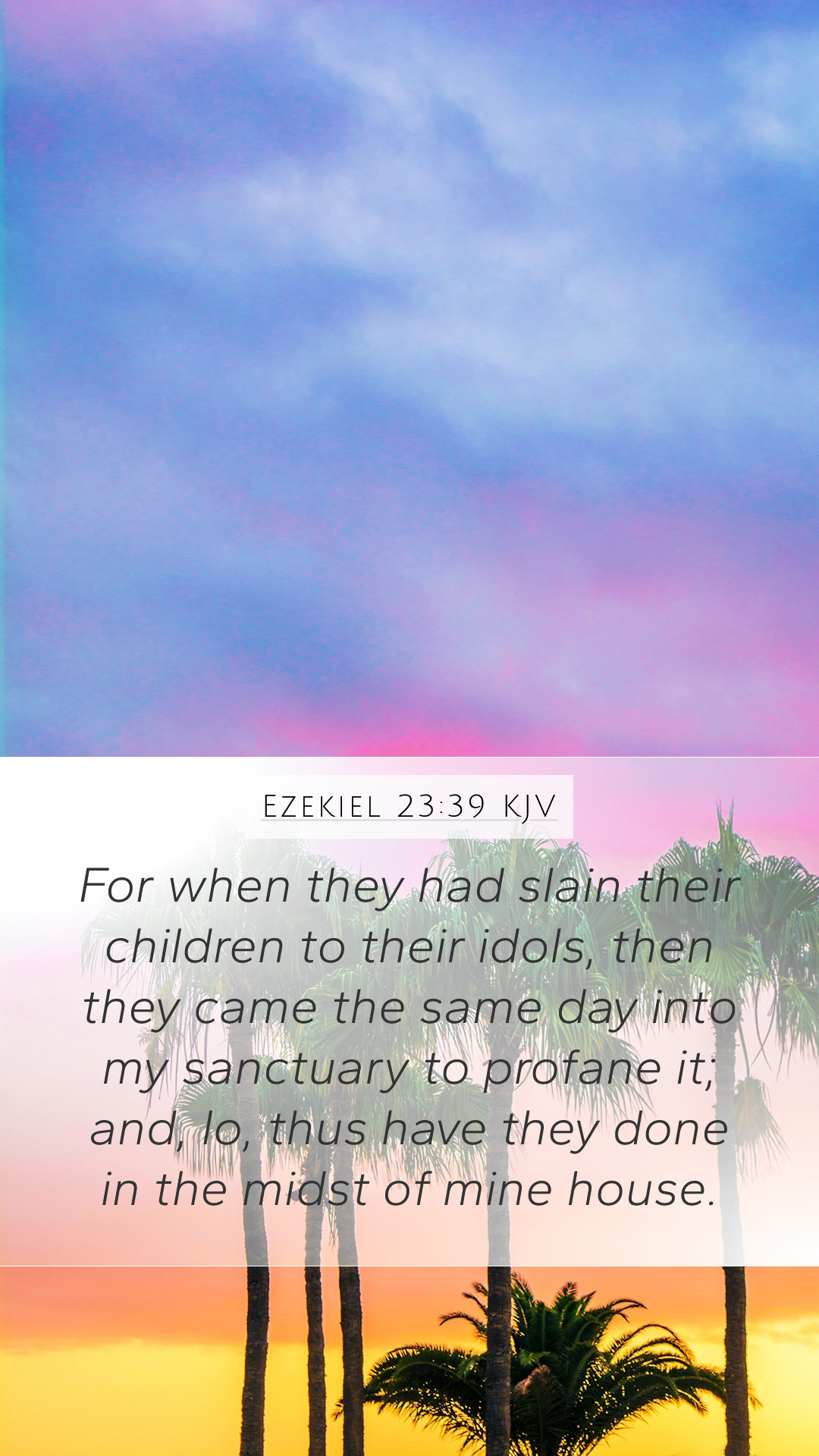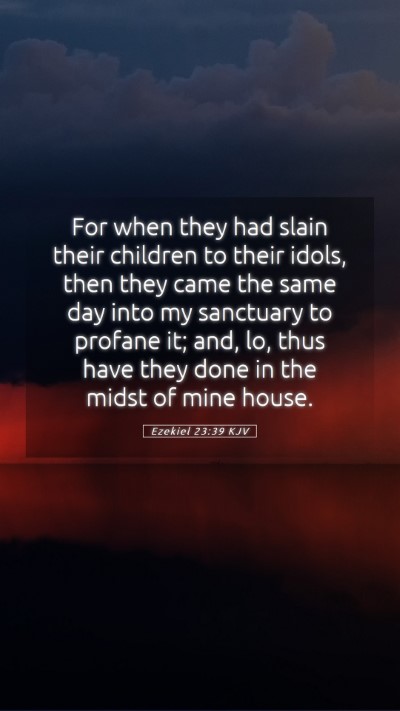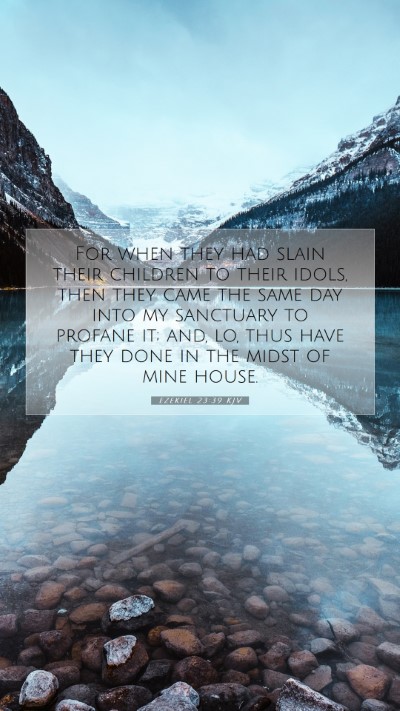Ezekiel 23:39 - Biblical Analysis and Commentary
Ezekiel 23:39 states: "For when they had slain their children to their idols, then they came the same day into my sanctuary to profane it; and, lo, thus have they done in the midst of mine house."
Summary of the Verse
This verse demonstrates the severe juxtaposition between idolatry and the sanctity of God's temple. It reveals the horrifying act of sacrificing children to idols, which emphasizes the extent of Israel's infidelity to God. The blatant act of desecrating the sanctuary on the very same day showcases a deep moral corruption and a lack of reverence for God's holiness.
Bible Verse Meanings
The meaning of this Bible verse is rooted in its historical context, where the people of Israel engaged in pagan practices, believing that such acts would secure favor or blessing from false gods. This passage indicates a profound spiritual degradation, wherein they would engage in horrific actions, such as child sacrifice, yet still approach God’s house with a profane heart.
Understanding Scripture with Commentary Insights
To understand Ezekiel 23:39, we can refer to several public domain commentaries.
-
Matthew Henry:
Henry notes that this verse illustrates Israel's hypocrisy, wherein they sought the blessings of God while simultaneously committing grievous sins. He highlights the contrast between the sacredness of the temple and the abominations committed by the people.
-
Albert Barnes:
Barnes elaborates on the cultural practices of idol worship during this period. He explains that the act of coming to the sanctuary after committing such atrocities underscores the futile nature of their religious practices, revealing a heart far away from true worship of God.
-
Adam Clarke:
Clarke puts emphasis on the consequences of idolatry, asserting that the people's sacrifices to idols had entirely voided their worship of Yahweh. He reflects on the serious nature of their sins and how it led them into deeper spiritual darkness.
In-depth Bible Verse Analysis
The significance of this verse extends beyond its immediate meaning; it also echoes themes throughout the Scriptures regarding idolatry and sanctity. The reference to profaning God's sanctuary indicates a serious breach of covenantal relationship, where the people sought to honor God with their lips while their actions declared otherwise.
Application of Bible Verses to Daily Life
Understanding this verse encourages believers to examine their own lives for areas of hypocrisy. It serves as a cautionary reminder that outward expressions of faith must align with inward beliefs and actions. Believers are called to guard their relationship with God, ensuring that they do not engage in practices that would lead them away from Him.
Biblical Exegesis and Context
When analyzing Ezekiel’s writings, it is essential to grasp the historical backdrop of Israel's spiritual decline. This period was marked by political turmoil, idolatry, and moral decay, leading to God's judgment against His people. Addressing these issues through a prophetic lens, Ezekiel provides critical insights into the nature of sin and its consequences.
Cross References
- Leviticus 18:21: Discusses the prohibition of child sacrifice.
- Jeremiah 7:30-31: Condemns similar practices among the Israelites.
- Isaiah 1:11-15: Illustrates God's rejection of empty worship insulated by sin.
Conclusion
Ezekiel 23:39 encapsulates the dire consequences of abandoning true worship and highlights the importance of aligning our lives with God's commands. For readers seeking Bible study insights, this text serves to remind us of the gravity of spiritual integrity as a reflection of our relationship with God.


